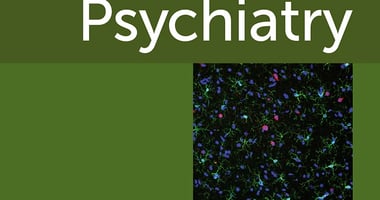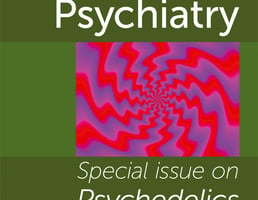Four of the articles chosen as the NEJM Journal Watch Psychiatry’s top 10 most clinically important...
Psychosocial Therapies Found to Boost Immune Function
 |
“These [improvements] were most consistent for CBT [cognitive-behavioral therapy] and for interventions incorporating multiple psychotherapies,” wrote Grant Shields, Ph.D., of the University of California, Davis, and colleagues. “Moreover, they did not differ by participants’ age, sex, or intervention duration. Finally, we found that these associations persisted for at least six months following treatment cessation.”
Shields and colleagues reviewed placebo-controlled studies that looked at the effects of a psychosocial intervention on some measure of immune health. Most of the studies involved testing psychosocial interventions in people with cancer or HIV.
The final sample included 56 studies that encompassed eight types of interventions: behavior therapy (which seeks to help patients understand and change problematic behaviors), cognitive therapy (which teaches patients how to change negative thoughts or mindset), CBT (which combines elements of cognitive and behavior therapy), CBT plus additive support (such as telephone follow-ups), bereavement or supportive therapy, psychoeducation, other psychotherapy (such as stress management), or multiple interventions. The studies also featured seven immune system biomarkers: proinflammatory cytokine levels, anti-inflammatory cytokine levels, antibody levels, white blood cell counts, white blood cell activity, viral load (for example, HIV levels), and other outcomes (for example, number of postoperative infections).
Overall, the participants who received any psychosocial intervention experienced a 14.7% increase in positive immune outcomes (for example, lower viral loads) and an 18.0% decrease in harmful outcomes (for example, proinflammatory cytokines) compared with those who did not receive a psychosocial intervention. The immune improvements were strongest among patients who received CBT or multiple psychosocial interventions. Among the biomarkers, a reduction in proinflammatory cytokines was the most robust improvement associated with psychosocial interventions.
“Given the effectiveness and relative affordability of psychosocial interventions for treating chronic disease, we suggest that psychosocial interventions may represent a viable strategy for reducing disease burden and improving human health. Looking forward, additional research is needed to elucidate the mechanisms through which psychosocial interventions exert relatively long-lasting, beneficial effects on the immune system and health,” the authors concluded.
(Image: iStock/FilippoBacci)
Time for Action: APA to Hold Town Hall Tonight on Structural Racism
 |
Learn More and Register Now





